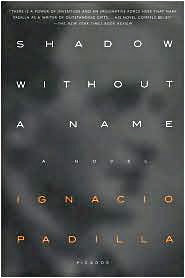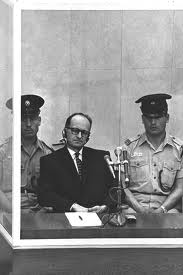Checkmate. Maybe.
Mexican au thor Ignacio Padilla creates characters who move like pawns, as if they were pieces in the chess games which are at the heart of the action here–they are often being overtaken by events and supplanted by other men as part of the grand, overall “game” of life. Padilla raises thought-provoking questions about the nature of selfhood here, as men appropriate each other’s names, accept or reject the past which is connected with those names, and hope, ultimately, to change their destinies by living someone else’s life. The reader must constantly question whether each character is who he says he is, and whether he really is who we think he is.
thor Ignacio Padilla creates characters who move like pawns, as if they were pieces in the chess games which are at the heart of the action here–they are often being overtaken by events and supplanted by other men as part of the grand, overall “game” of life. Padilla raises thought-provoking questions about the nature of selfhood here, as men appropriate each other’s names, accept or reject the past which is connected with those names, and hope, ultimately, to change their destinies by living someone else’s life. The reader must constantly question whether each character is who he says he is, and whether he really is who we think he is.
Main character Thadeus Dreyer goes through several incarnations as Padilla connects him to seminal events of the 20th century: the fall of the Austro-Hungarian Empire and World War I, the rise of German Socialism and World War II, and ultimately, the war crimes trial of Adolf Eichmann.

Four speakers give four overlapping views of the characters and action. Franz Kretzschmar, the first speaker, is living in Buenos Aires in 1957, as he recalls the history of his father, Viktor Kretzschmar, who lived another man’s life after assuming another man’s name. On a train going from Austria to the eastern front in 1916, the father had played a life-or-death chess game with another man and had “won.” The winner became “Viktor Kretzschmar” and lived out the war as pointman on the Salzburg-Munich train line; the loser became Thadeus Dreyer and faced almost certain death in battle.
Richard Schley, the second s peaker, is a seminarian in 1918, when he sees “Thadeus Dreyer,” whom he once knew in Vienna as Jakob Efrussi. Another chess game leads to another identity switch. A third speaker, Alikoska Goliadkin, is an associate of Dreyer during his rise to power in the Nazi era, and he connects Dreyer with Adolf Eichmann and with Kretzschmar’s son Franz, who may be part of a Nazi project to create look-alikes of powerful Nazi leaders. The fourth speaker, Daniel Sanderson, is an heir of Baron Blok-Cissewsky, who has left coded information in a chess manual in 1989, explaining some of the final projects of the Hitler era. The Baron, not surprisingly, is yet another of seven incarnations of Dreyer, and as Sanderson investigates the trial and execution of Eichmann and his connection to Dreyer, questions arise as to the true identity of the man executed as “Eichmann.”
peaker, is a seminarian in 1918, when he sees “Thadeus Dreyer,” whom he once knew in Vienna as Jakob Efrussi. Another chess game leads to another identity switch. A third speaker, Alikoska Goliadkin, is an associate of Dreyer during his rise to power in the Nazi era, and he connects Dreyer with Adolf Eichmann and with Kretzschmar’s son Franz, who may be part of a Nazi project to create look-alikes of powerful Nazi leaders. The fourth speaker, Daniel Sanderson, is an heir of Baron Blok-Cissewsky, who has left coded information in a chess manual in 1989, explaining some of the final projects of the Hitler era. The Baron, not surprisingly, is yet another of seven incarnations of Dreyer, and as Sanderson investigates the trial and execution of Eichmann and his connection to Dreyer, questions arise as to the true identity of the man executed as “Eichmann.”

Padilla’s plotting is obviously complex, but despite constant changes of identity, and twists and revelations throughout, the novel never loses its way-nor will the careful reader. The tight story line maintains its tension, and the author’s ingenuity in manipulating characters and historical events provides constant surprises. The novel is very much an intellectual chess match between author and reader, and in this case, both turn out to be winners.
.
Notes: The author’s photo is from http://www.eluniversal.com.mx
The chess match is from http://www.fastweb.com
The photo of Adolf Eichmann is from http://www.shabak.gov.il
